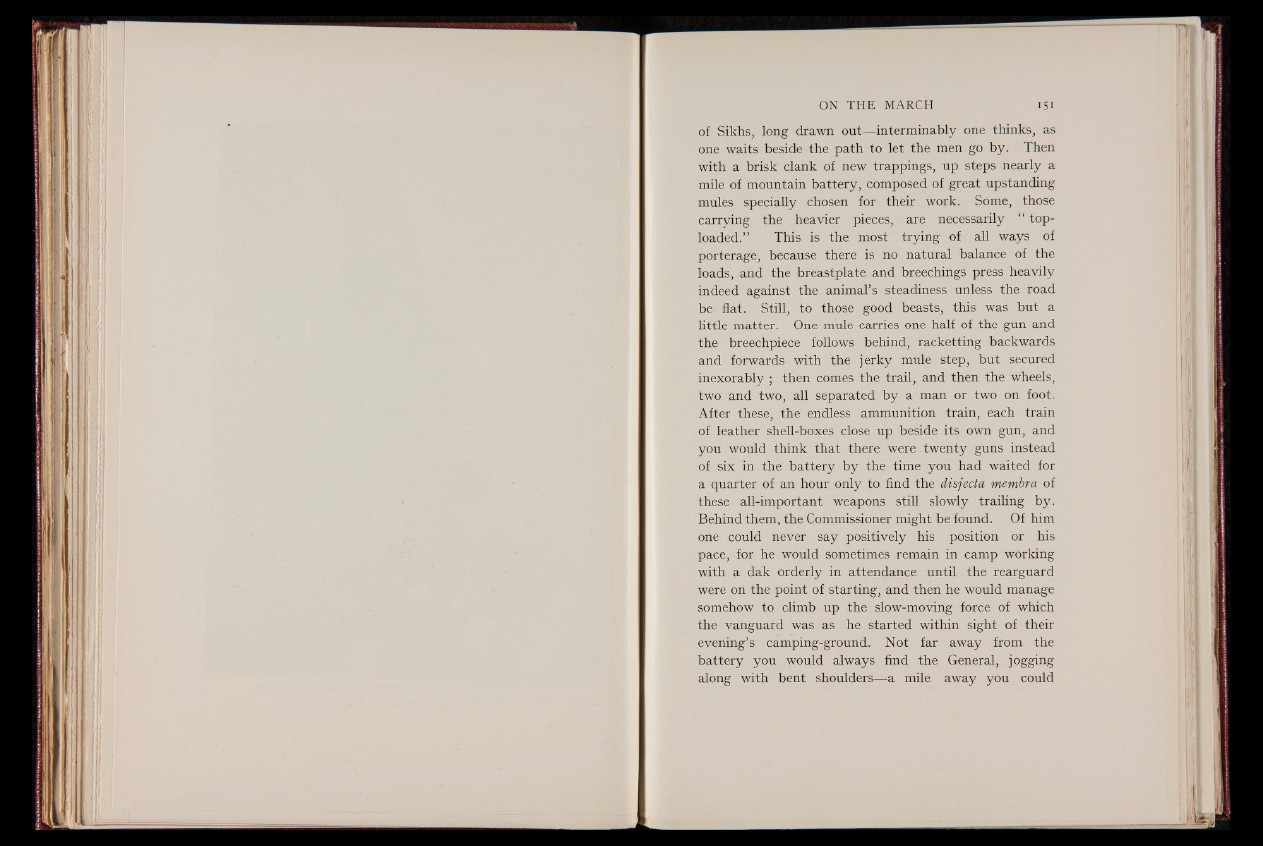
ON TH E MARCH
of Sikhs, long drawn out— interminably one thinks, as
one waits beside the path to let the men go by. Then
with a brisk clank of new trappings, up steps nearly a
mile of mountain battery, composed of great upstanding
mules specially chosen for their work. Some, those
carrying the heavier pieces, are necessarily “ top-
loaded.” This is the most trying of all ways of
porterage, because there is no natural balance of the
loads, and the breastplate and breechings press heavily
indeed against the animal’s steadiness unless the road
be flat. Still, to those good beasts, this was but a
little matter. One mule carries one half of the gun and
the breechpiece follows behind, racketting backwards
and forwards with the jerky mule step, but secured
inexorably ; then comes the trail, and then the wheels,
two and two, all separated by a man or two on foot.
After these, the endless ammunition train, each train
of leather shell-boxes close up beside its own gun, and
you would think that there were twenty guns instead
of six in the' battery by the time you had waited for
a quarter of an hour only to find the disjecta membra of
these all-important weapons still slowly trailing by.
Behind them, the Commissioner might be found. Of him
one could never say positively his position or his
pace, for he would sometimes remain in camp working
with a dak orderly in attendance until the rearguard
were on the point of starting, and then he would manage
somehow to climb up the slow-moving force of which
the vanguard was as he started within sight of their
evening’s camping-ground. Not far away from the
battery you would always find the General, jogging
along with bent shoulders— a mile away you could